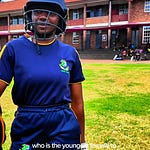When I first heard that a group of South Africans were stranded in Ukraine and asking the government for help, I had to pause.
My first thought was simple: should they even be coming back?
These are not aid workers or journalists who found themselves caught up in something unexpected.
They are men who were recruited, or perhaps misled, to fight in someone else’s war.
South African lawyer Ziyaad Patel said these men are not just stranded citizens.
“All these individuals are highly trained. In fact, I believe they’re even better trained than our own SANDF soldiers. They pose a serious national security threat to our sovereignty and our territory. These are people motivated by financial gain, and they shouldn’t be protected. They need to face the full might of the law.”
There are seventeen of them that we know of, young men from KwaZulu-Natal and the Eastern Cape.
They were lured into a war thousands of kilometres from home and are now stuck in the Donbas region, asking to be rescued.
Some have already lost their lives this year.
That raises an important question. Is it even legal for South Africans to take up arms for another country?
Patel says the law is very clear on this point.
“The law is very clear when it comes to mercenary activities. Section 2 of the Regulation of Foreign Military Assistance Act says no person may, within the republic or elsewhere, recruit, train or engage in mercenary activity. It’s a strict prohibition.”
By South African law, these men should never have been fighting abroad in the first place. Now the government says it is stepping in.
The President said that international relations officials are engaging with Russian authorities to help South Africans who say they were misled into joining the war.
This kind of story is not new.
Many South Africans have joined the Israeli Defence Force over the years.
“South Africans have joined the IDF in large numbers, often young and impressionable,” Patel explains. “They are recruited through structured channels and promised benefits like tuition and accommodation. Yet the authorities here have taken no action. There has been no prosecution and no accountability. The law is applied selectively.”
That brings us to the heart of the issue. In a country built on the rule of law, can we really afford to ignore it when our citizens fight in someone else’s war?
This story goes beyond the stranded soldiers in Ukraine.
It is about how South Africa chooses to apply its laws, and what it means when those laws seem to bend depending on who breaks them.













